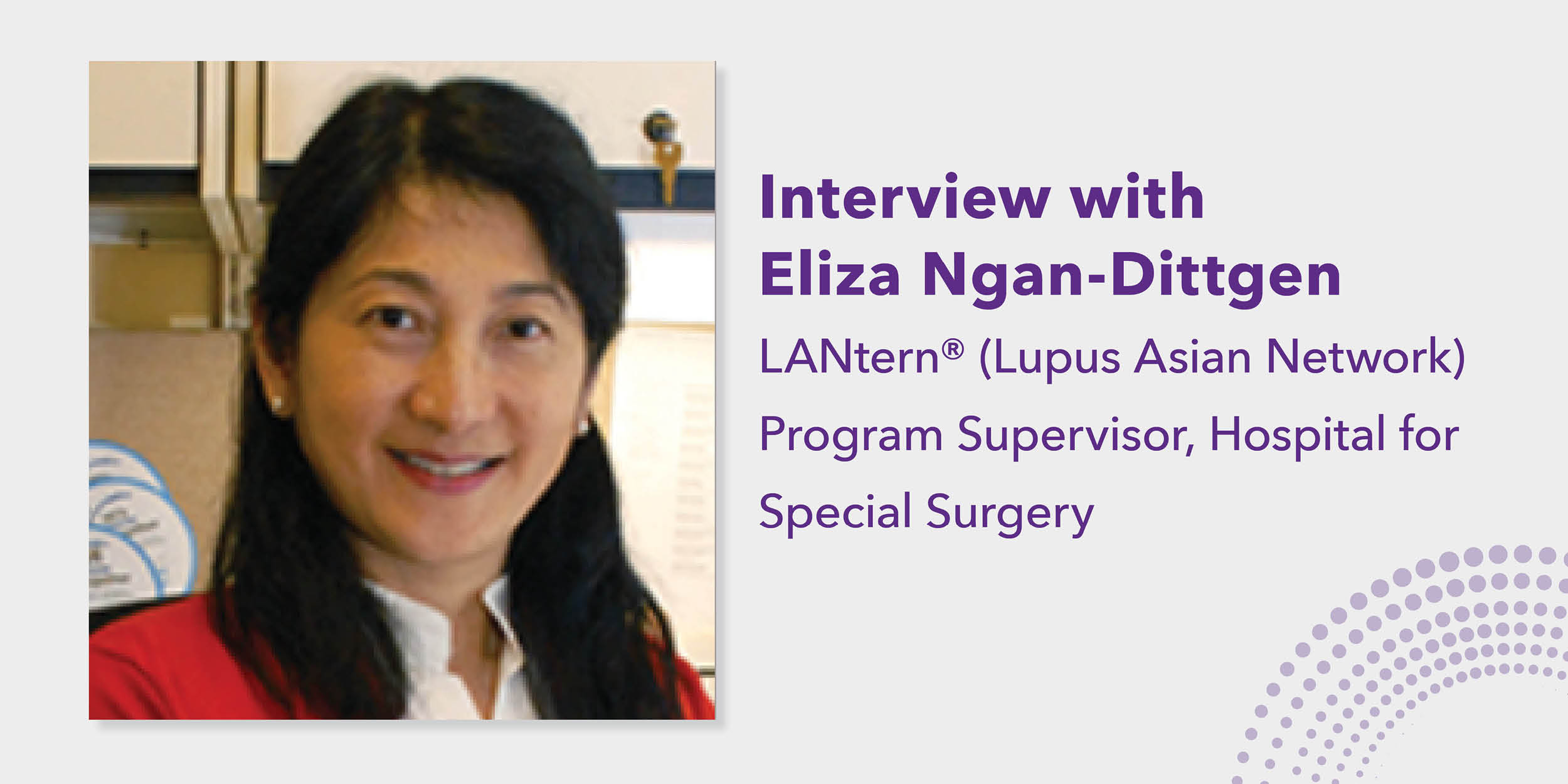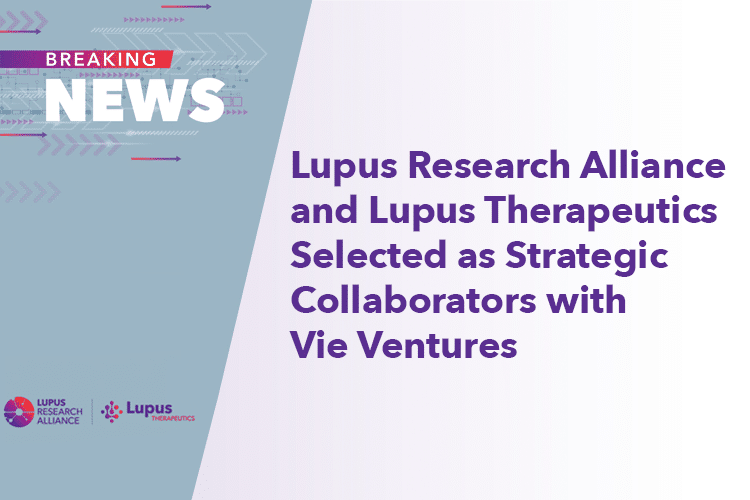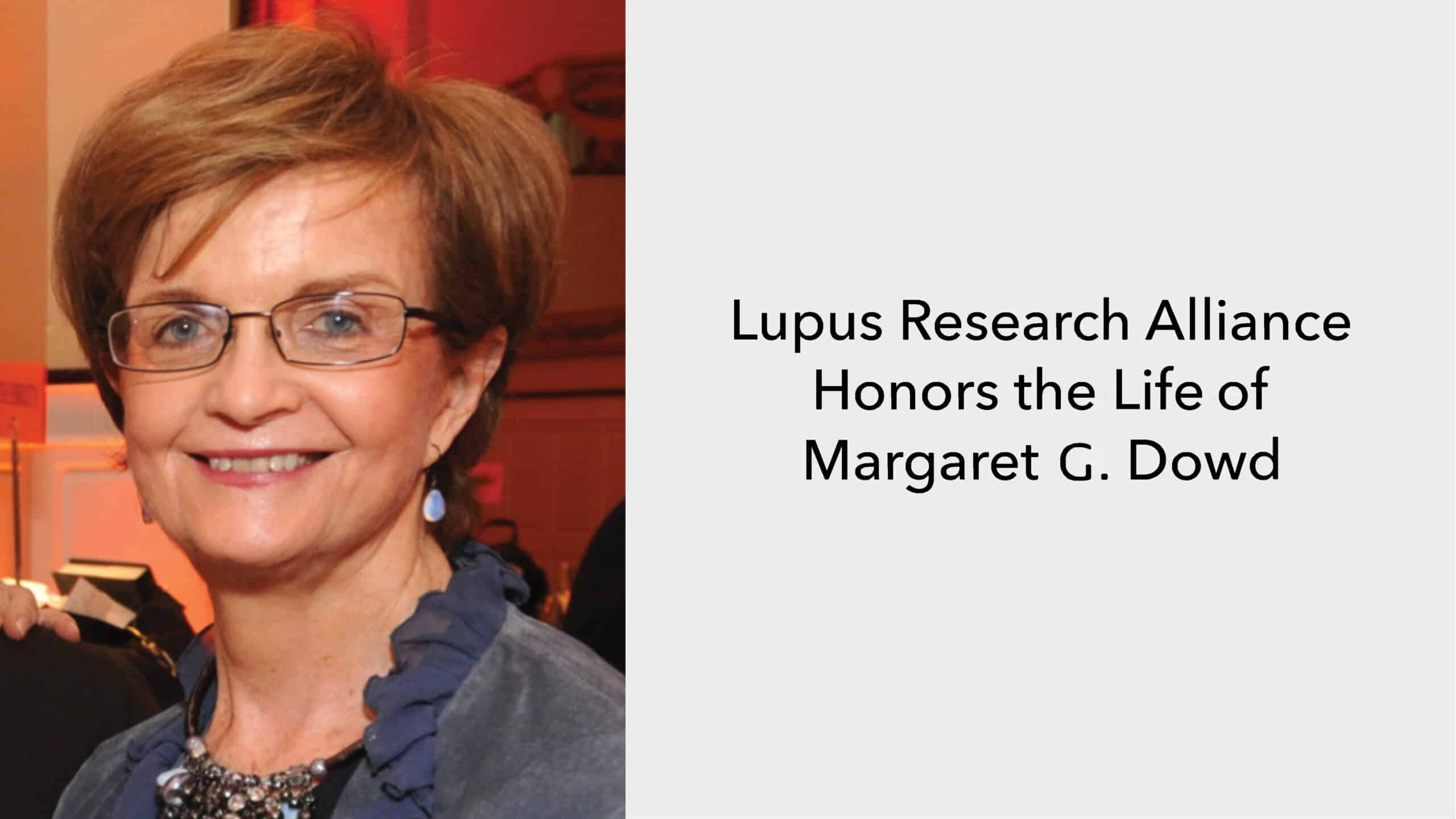Interview with Eliza Ngan-Dittgen, LANtern® at HSS for Asian American Pacific Islander Heritage Month

Interview with Eliza Ngan-Dittgen, LANtern® at HSS for Asian American Pacific Islander Heritage Month
May 25, 2022
In recognition of Asian American Pacific Islander Heritage Month, we spoke with the Program Supervisor of LANtern® (Lupus Asian Network) at the Hospital for Special Surgery to learn more about how lupus affects this population and what services are offered to the community. The Lupus Research Alliance collaborates closely with LANtern – our own Director of Advocacy and Public Health Information, Diane Gross, serves on LANtern’s Advisory Board. Eliza spoke with us as both a healthcare professional and an Asian American with lupus.
Why is it important to recognize Asian Pacific American Heritage Month?
I think that every race and ethnicity has a unique identity defined by rich history and culture that is precious to retain. Recognizing the heritage and contributions means a lot to me as it’s a significant token for moving toward a nation of diversity and inclusivity. Learning about another culture enhances our mutual understanding and respect of differences, bringing us closer together.
We particularly need to support and uplift the Asian American population in light of the recent spike in Anti-Asian violence. It is important to work in unity in the face of challenge.
Do people with lupus of this descent have any special needs?
Absolutely. Asian Pacific Americans (APA) is the fastest growing minority group in the US at present. There are many ethnic subgroups with wide differences of characteristics, languages, beliefs and practices. Their roots can be traced to East and Southeast Asia and the Indian subcontinent. Variations in income, education and English language in these subgroups are remarkable. The high poverty rate may surprise many, as it debunks the “model minority” myth and the perceived monolithic nature of the Asian population. Thus, income, insurance, and language are some of the barriers that deepen health disparities and considerably impact the quality of care for this group.
A recent qualitative research analysis we conducted revealed some key generalities we can make about how cultural practices, beliefs and values influence the needs of Asian Americans and helps us tailor our programs to meet these needs.
The most pronounced is a lack of knowledge and misinformation about lupus in the community. For instance, the Chinese translation of lupus, which is “red rashes & wolf lesions” may sound off-putting to some. People often mistake it for a contagious skin disease much like a sexually transmitted disease. Lupus patients tend to stay silent because they would be stigmatized, blamed, and judged by the community for contracting the disease. Also, Asians, especially women, are expected to endure without burdening others. Talking about illness and seeking help both outside and within the family is considered taboo. Over time, suppressed emotions may lead to issues like stress or depression. An illness like lupus is often ignored until it has already advanced.
How does LANtern® address those needs?
LANtern® (Lupus Asian Network) is the only national hospital-based bilingual support and education program dedicated to serving Asian Americans with lupus and their families. We reach out to the communities we serve, collaborating with community partners like the Lupus Research Alliance. Our services include offering bilingual (Chinese) educational materials and programs to educate the public and professionals about the disproportionately high rate for lupus among Asian Americans. We participate in local health fairs and provide direct patient support.
Results of our qualitative research analysis showed that peer support is important and helpful to the Asian communities. Our support group members express that they find strength, hope and inspiration from each other’s stories. Sharing both worrisome and joyous experiences help dispel feelings of loneliness and isolation because members are “holding hands” and “speaking the same language” on their lupus journeys. We also provide one-to-one counseling through a toll-free support line. Click here for more information about LANtern® and the services available to Asian Americans with lupus. Since the beginning of the pandemic, our transition from in-person to virtual programming has enabled us to extend our reach to as far across the globe as Hong Kong!
Why do you work at LANtern®?
If I can use my voice to help people who are suffering from this complex disease, why not? Nothing is more rewarding than putting a smile on a face!



